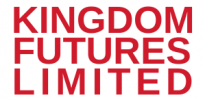The London Metal Exchange
The London Metal Exchange (LME) is the futures exchange with the world’s largest market in options, and futures contracts on base and other metals.The LME offers prompt maturity contracts with daily expiry dates of up to three months from trade date, along with longer-dated contracts up to 123 months, it also allows for cash trading and physical delivery . It offers hedging, worldwide reference pricing, and the option of making or taking physical delivery to settle expiring contracts.
More than 80% of global non-ferrous metals business is conducted on the Exchange’s three trading platforms: LMEselect (electronic), the Ring (open outcry) and the 24-hour telephone market. The world’s metal community uses the LME to trade futures, options, and its latest contract, LMEswaps, to hedge against adverse price movements – prices which are discovered on LME are frequently used as the global reference for that Metal.
Participants can trade aluminium, copper, tin, nickel, zinc, lead, molybdenum, cobalt, steel billet and two regional aluminium alloy contracts.
In 2013, 171.1 million lots were traded on the LME, the equivalent of 4.0 billion tonnes and $14.6 trillion in notional value.
At the close of the year, 7.4 million tonnes of material was held on LME warrant in 732 storage facilities across 37 locations internationally.
The LME is located at no. 56 Leadenhall Street in the City of London.
https://www.youtube.com/watch?v=1mLnu5BN-vk&feature=youtu.be
A futures contract is the obligation to buy or sell a standard quantity of a specified asset (metal) on a set date, at a fixed price agreed today.
LME futures contracts are unique and designed to mirror physical trading. Its prompt date structure enables participants to buy and sell futures daily out to three months, weekly out to six months and monthly up to ten years.
Futures positions that are not ‘closed out’ by an opposite sale or purchase are physically settled. All LME futures are settled on the prompt date with initial and variation margins called during the term of a contract.
The use of daily prompt dates is an important difference between the LME and other futures exchanges. Designed to mirror physical trading, daily prompts enable users to accurately hedge their physical transactions down to the day.
The LME has futures contracts that trade daily out to three months forward, weekly up to six months and monthly up to 123 months in the future, depending on the underlying metal.
Weekly prompt dates usually fall on a Wednesday while monthly prompt dates are normally the third Wednesday of the month. Where these are altered due to bank or public holidays or other non-tradable dates an LME notice will be issued to provide a substitute prompt date and are noted on the trading calendar.
LMEselect is the LME’s electronic platform for the trading of all LME contracts. Available from 01.00 to 19.00, it offers a range of advanced features all tailored to the LME’s unique prompt date structure.The platform integrates with member trading platforms via a FIX API either from member sites or via proximity hosted data centres for the lowest latency trading strategies.
LMEselect’s unique ‘high-availability’ design ensures real-time data integrity across two data centres. Members access the full range of LME trading services from their own information systems via secure high-speed networks.
LME Clients access LMEselect via member systems or member-sponsored ISV platforms. In the case of member systems, client traffic must pass through a member order-routing bridge and/or a pre-trade risk engine fully controlled by the sponsoring member’s compliance team.
Client traffic can also pass through an ISV pre-trade risk engine endorsed and controlled by the sponsoring member’s compliance team.
Kingdom Futures offers its clients a choice of different third party electronic order routing platforms that feed directly into LMESelect via the architecture provided by its clearing members.
